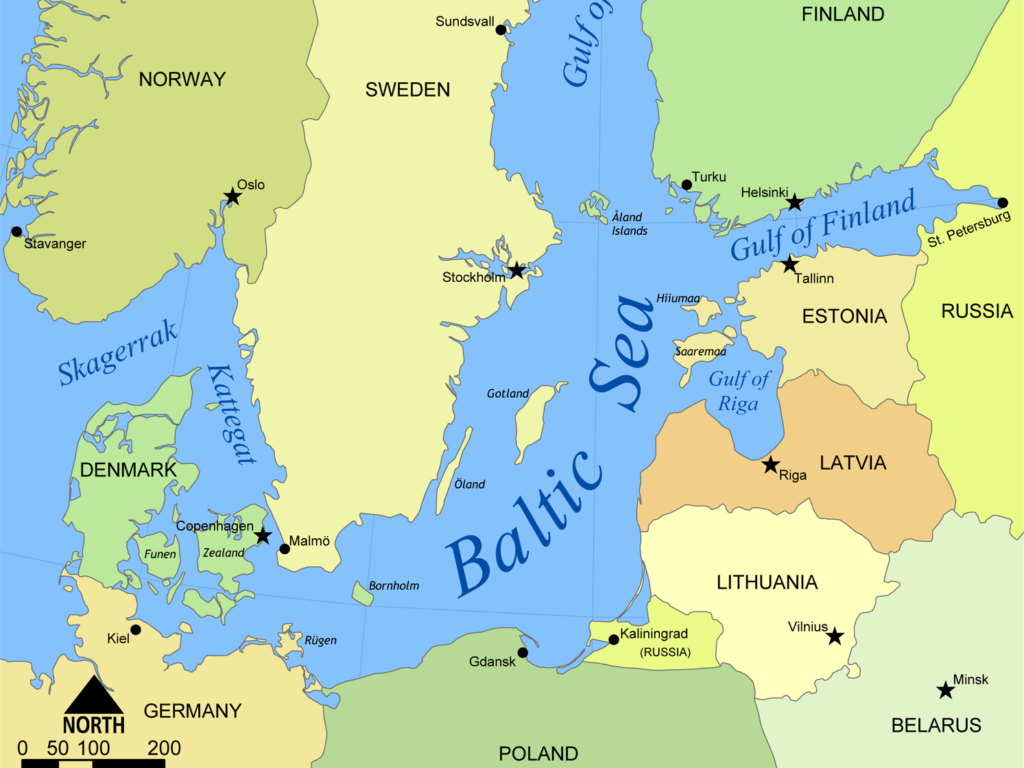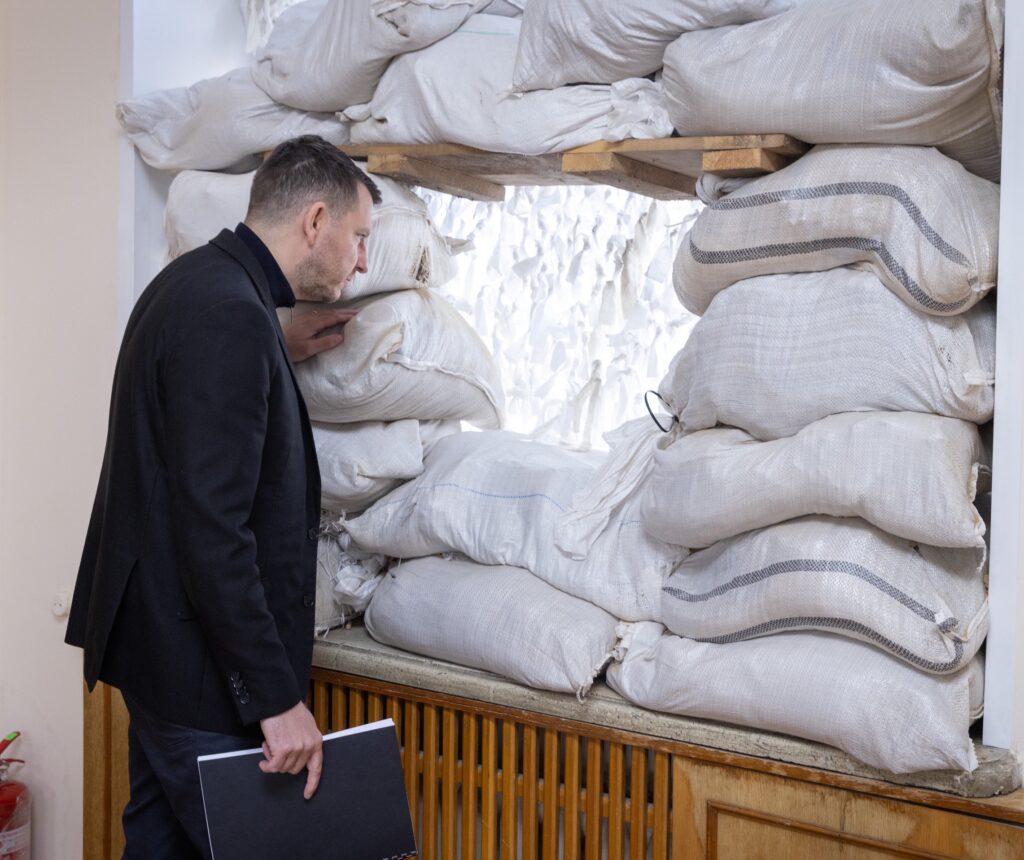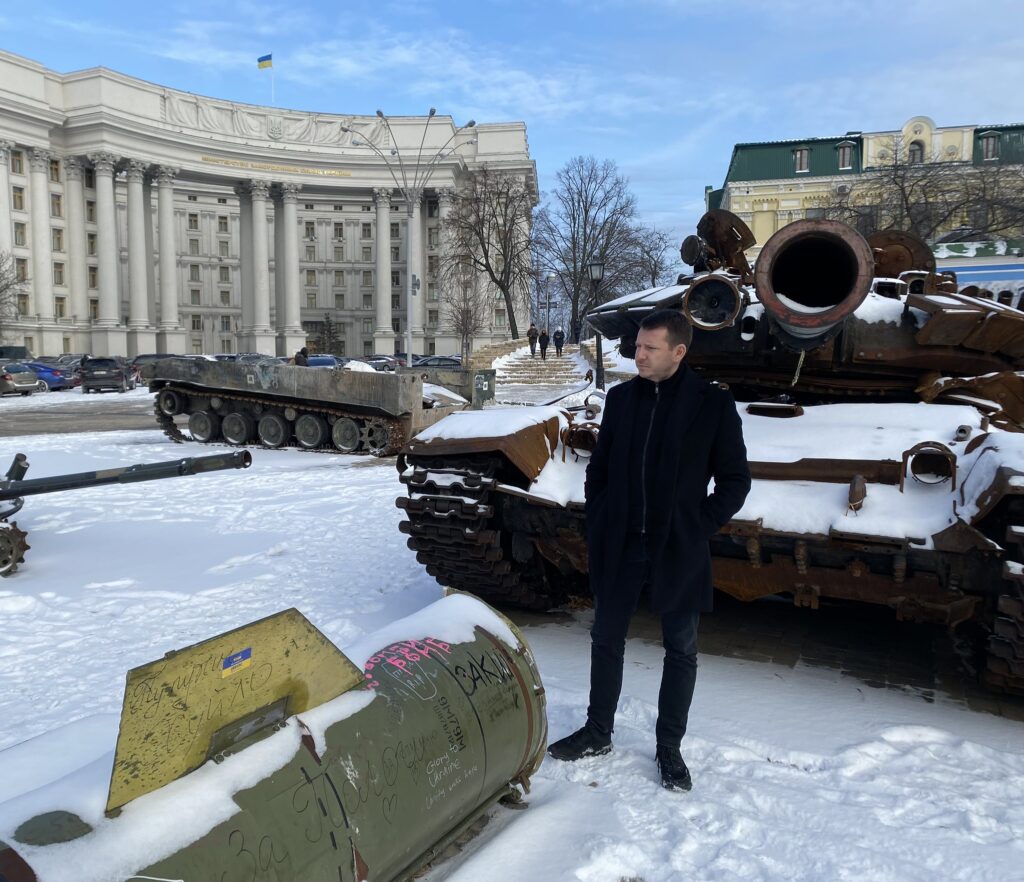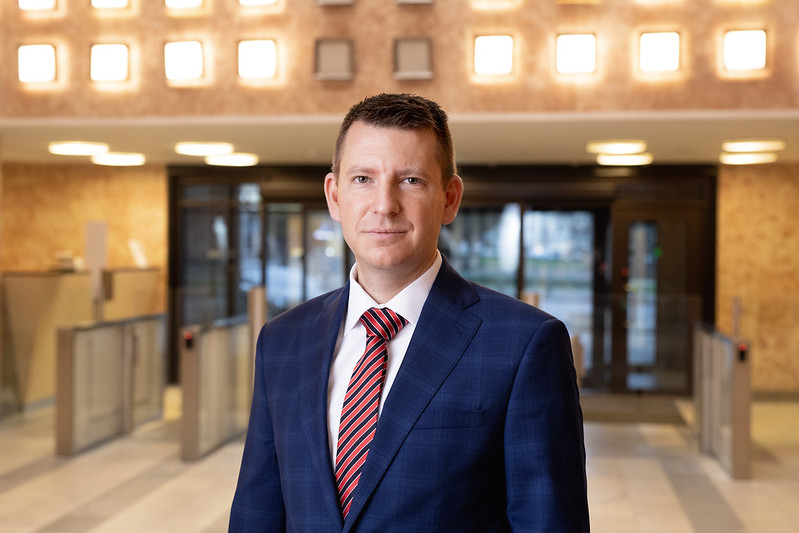The secretary general of the Estonian foreign ministry, Jonatan Vseviov, says in an interview with Estonian World that every country can do their bit to help stop Russian aggression against Ukraine and everybody needs to reinforce the message that the cost of continuing the aggression far outweighs the cost of stopping it.
Having played a key role in shaping Estonia’s security strategy and foreign relations for over a decade, Jonatan Vseviov is no stranger to dealing with Russian aggression: the secretary general of Estonia’s foreign ministry previously served as his country’s ambassador to the United States and as the secretary general of the defence ministry. He is also a reserve officer in the Estonian defence forces.
With the NATO Vilnius Summit around the corner, our contributor Ben Bathke spoke with Vseviov about his expectations of the meeting for Ukraine, how to make sanctions against Russia more effective and a potential future relationship between the West and Russia. The article has been edited for length and clarity.
What are your general expectations of the Vilnius Summit?
I’m absolutely confident that at the end of the summit, we’ll have a consensus on everything on the table. It’ll take a lot of work, but we’ll get there.
NATO is the most successful military alliance in history when it comes to deterring outright military attacks against its member states. NATO is more capable, more serious and more united on this than it was two years ago; than it’s ever been since Estonia joined in 2004. We’re at the best state we’ve ever been at.
We’ll make several important decisions to strengthen defence and deterrence. But no NATO summit ends history. I know there’s a level of expectation in the world that we get to a point where we solve the security issues. We won’t. Defence and deterrence will never be sufficient. Additional decisions need to be made as the threat landscape changes. But we’re certainly on the right path now. We’ll make good decisions in Vilnius, implement the decisions made in Madrid, and then we’ll have to go forward. We’re finally focused on collective defence again, which we weren’t 10-15 years ago.

What are your hopes for the summit regarding Ukraine’s path to NATO membership?
Our position – and NATO’s position – is that Ukraine will be a member of NATO, as articulated in the Bucharest Summit Declaration [from 2008]. We’re saying that we need to demonstrate there’s a process toward that.
NATO is a consensus-based organisation, so obviously it’s going to be a consensus decision. What the Vilnius Summit says and does is going to be politically consequential, even if it says and does nothing on the topic of Ukraine’s path to NATO membership, which would be unfortunate. We’re advocating for providing Ukraine with an additional step toward membership.
Which positions do you see emerging from EU partners in the run-up to the Vilnius Summit?
We have demonstrated unprecedented unity on the strategic approach we’ve taken, on the substance of our policy and on the importance of military assistance. We also demonstrated that we could evolve. We’ve seen what seemed politically impossible one day, become possible the next day and a done deal the day after.
Let us remember the different political taboos that existed: “Can we provide lethal assistance to Ukraine? Can we maintain our embassies in Kyiv? Can we provide Western-made weapon systems? Can we sanction [the Russian president, Vladimir] Putin personally?” Time and again, we demonstrated that we’re able to confront the taboos, have a – sometimes very heated – discussion about them, and at the end of the day come to a conclusion; a consensus, that has actually constantly moved us forward with every little thing.
How confident are you that Turkey will drop its resistance to Sweden’s NATO membership?
When the war broke out, we said: “This war will fundamentally change Europe’s future and its security architecture – either for the better, or for the worse.” One of the ways it could change for the better, we pointed out, is Finland and Sweden joining NATO.
Our position is clear: Sweden also needs to be a NATO ally. It would be a huge benefit for Sweden and Baltic Sea region’s security. It would also hugely benefit NATO as a whole. Turkey and Hungary are yet to ratify. The hope is that they will. I’m fairly confident that by the Vilnius Summit we’ll have a decision that NATO will have 32 allies (NATO’s chief Jens Stoltenberg said on the eve of the summit that the Turkish president, Recep Tayyip Erdogan, has finally agreed to support Sweden’s bid to join the alliance – editor).

Has Estonian prime minister Kaja Kallas’s tough stance on Vladimir Putin been a deliberate communication strategy?
Our deliberate strategy is to articulate as clearly as we possibly can to say what we think about this situation, to make sure our voice is heard. That’s been a deliberate diplomatic strategy at the EU and NATO tables as well as a deliberate communication strategy. We recognise that what we think may not be shared by all our allies.
We don’t comment on things we consider moderately important. But we’ve concluded that the risks of being silent on critically important matters far outweigh the risk of angering some PR adviser somewhere else. This has been a deliberate strategy since before 24 February 2022 [when Russia invaded Ukraine].
Both Ron DeSantis and Donald Trump, the leading Republican candidates for the November 2024 US presidential elections, have indicated they’d withdraw support to Ukraine. Are you concerned about the possible consequences?
We don’t know what will happen, it’s too early to say. But we’re not concerned. We watch what influential political leaders are saying. In some cases, we interact with them, such as US senators.
We don’t think there’ll be a collapse of Western policy because of an election outcome. We’ve seen elections take place in Europe that haven’t changed how Europe strategically approaches Russia’s war of aggression. Plus, a lot of things will happen before Americans get to vote next year.

There’s been reports about Russia circumnavigating Western sanctions via central Asian countries and a loophole in the EU sanctions regime. Is the EU doing enough to try to stop Putin’s war machinery?
Russia trying to find ways to circumvent Western sanctions is rational and logical and is to be expected. Its economy and industrial-military complex is also finding ways to accommodate itself to the overall sanctions regime. We have three tools at our disposal to affect that: tweaking the sanctions regime itself, that is closing the loopholes. Our sanctions packages are extremely complex legal texts, but there are ways to fix the shortcomings and make it harder for Russia to circumvent them.
Secondly, we need to get better at the technical implementation of the sanction packages. With numerous agencies and customs involved, this is very difficult, too. Third, we can better utilise our foreign policy and diplomatic power to convince other countries around the world not to assist Russia in circumventing. This means that the West, including the EU, must be more strategic in their foreign policy and in utilising the diplomatic tool kit.
Have you actually been successful in stopping countries exporting goods to Russia?
We’re talking to every neighbour of Russia, every Russian trade partner and every major economy in the world. We’ve been able to affect them and change things. We’ve been working closely with other allies. I don’t know who was able to affect them – could’ve been the US, the EU, or some other country.
For a strategic Europe, this is our first true test. No speech on Europe’s strategic strength will actually make us good. We’ll have to do those things, many of which happen behind the scenes. We need to utilise both the soft and the hard power Europe has, the latter primarily being our economic strength. I think Europe has become more self-confident and much better as a strategic player since 24 February 2022, but there’s a long way for us to still go.

Speaking of the EU as a strategic player, what’s your message to countries that don’t take as tough a stance against Russia’s unprovoked war of aggression as the West does?
“Convincing the Russian leadership that aggression does not pay” is how we’re asking every member of the international community to help. It’s a globalised economy, so everyone can do their bit. If you want to contribute to ending the war sooner rather than later, help us reinforce the message that the cost of continuing this aggression far outweighs the cost of stopping it.
Much of Russia’s revenue is derived from energy exports, primary oil; we need to find a way to cut those revenues without fundamentally upsetting the international oil market. Oil-producing states are critically important in helping to find ways to maintain stability in international markets while helping to cut Russian revenues, which will help bring the end of the war closer.
Are you worried about Western unity and political support fracturing in case Ukraine’s counteroffensive fails to meet its objectives?
The only thing that matters is the end result once the war is over. That said, it’s enormously important for us to focus on the right thing, not a particular battle or offensive or defensive. Things can go poorly or well during any war. The only things that matter is whether the end state guarantees a European and international order that has territorial integrity and sovereignty at its core, that has aggression as a tool of statecraft discredited, that has a Ukraine that is free and sovereign. So, while I admit that every military operation is consequential, I’d join those downplaying the importance of any particular offensive.

So, you’re confident that the political support will remain strong even if the outcome is lower than expected?
Yes, I am. Because what’s the alternative? And who’s able to articulate an alternative that would sustain a European security order that keeps the territorial integrity and sovereignty at its core? I’ve heard of no articulation of any sort of credible alternative to what we’ve been trying to do. I would not doubt us. We have much more staying power as democracies than people assume we have.
How do we have a relationship with Russia in the future? Do you have demand or conditions, or even a view of what kind of Russia you realistically might be able to get?
We base nothing on hope. I think Estonia learned from our mistakes of the past, particularly late 1930s/1940. Our policy is aimed at getting Russia back into Russia. We do not think it’s wise or realistic to have more expansive goals and devise a future for Russia, which is a great power and civilisation, and always will be. They don’t need our advice as it doesn’t lead to the direct implementation of it.
The future of Russia is up to the Russian people; and the relationship Russia has with Europe, or the West, will be up to the leaders the Russian people accept as Russia’s leaders. Many thought we’d continue to be dependent on Russian oil and gas, but we’ve proven over the past winter that the West can survive and thrive without a relationship with Russia. NATO countries have a combined population of roughly a billion people, which still constitutes the most significant economic power in the world.
If Russia ends up being interested in a constructive relationship with the West, we cannot ignore the fact that trust has been fundamentally broken. It’s up to Russia to rebuild that trust. Different elements are critical here: ending the aggression, helping rebuild Ukraine, ensuring accountability for the crimes committed.
They’d need to demonstrate, likely with small steps, that they actually intend to fulfil the commitments they voluntarily take in international agreements. It’s going to be a lengthy process that could take generations, but it would have to begin with a Russia that sincerely wishes to change course and get a constructive relationship with the West, and then starts to rebuild trust.
Read also: Jonatan Vseviov: Estonia invited Kalush Orchestra to “send a message” on Europe Day

